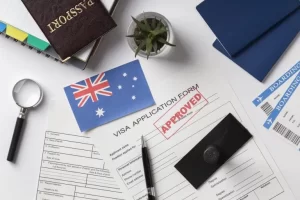Facing the Skills Shortage: The Challenges of 2024
Have you ever looked back on a decision and wished you had chosen differently? I certainly have. In 2004, during a trip to New York for my husband’s 30th birthday, we had the chance to attend a party hosted by Sting, mingling with celebrities like the cast of ‘Friends’. Instead, we stuck to our dinner plans. It’s a funny anecdote, but I still regret not taking that unique opportunity.
In the world of recruitment, particularly for regional Australian businesses, similar regrets can arise from not exploring international hiring options. The skills shortage is a pressing challenge, driven by an aging workforce, fewer apprenticeships, and high dropout rates. As we step into 2024, addressing this shortage requires innovative solutions and a willingness to embrace new trends.
In this article, I’ll share the top recruitment trends for 2024 and how they can help your business thrive. From focusing on skill-based hiring to understanding visa processing intricacies, you’ll learn how to make informed decisions that you won’t regret. Let’s dive in.
Why International Hiring is Essential
In 2024, the skills shortage in Australia remains a critical issue, especially for regional businesses. The traditional local hiring pool is shrinking, and it’s becoming increasingly clear that looking beyond national borders is not just an option—it’s essential. Here’s why:
- Access to a Global Talent Pool: The world is full of highly skilled tradespeople ready to bring their expertise to your business. By expanding your search internationally, you open up a vast resource of talent that can meet your specific needs.
- Diversifying Skills and Perspectives: International hires bring diverse experiences and innovative approaches. This diversity can lead to new techniques and practices that enhance your business operations and drive innovation.
- Addressing Immediate Needs: Filling critical roles quickly with qualified candidates from abroad can prevent operational disruptions. This approach ensures that your business continues to run smoothly, even when local talent is scarce.
By considering international hires, you’re opening the door to a wealth of opportunities that can strengthen your business and help you stay competitive.
Top Recruitment Trends for 2024
As we navigate through 2024, several key recruitment trends are emerging that can help businesses address the skills shortage and build stronger teams. Here are the top trends you should be aware of:
Focus on Skill-Based Hiring
Traditional hiring methods often emphasize formal qualifications and work experience. However, in 2024, there’s a significant shift towards skill-based hiring. This approach focuses on the specific skills and competencies that candidates bring to the table, rather than just their educational background or job history. By prioritizing skills, you can find the best fit for your business needs, fostering a more capable and adaptable workforce.
Emphasis on Diversity and Inclusion
Diverse teams are proven to be more innovative and effective. In 2024, there’s a growing emphasis on building inclusive workplaces that leverage the strengths of varied backgrounds and perspectives. This trend not only promotes a healthier, more dynamic work environment but also helps in attracting top talent from different demographics and cultures.
Enhanced Visa Processing Efficiency
One of the biggest hurdles in international hiring has traditionally been the visa process. However, 2024 brings improvements in visa processing time, making it more streamlined and less burdensome. Understanding visa requirements and eligibility is crucial to making the most of this trend. By staying updated with the latest changes and working with experts, you can navigate the visa application process more efficiently.
Visa Processing: What You Need to Know
Navigating the visa process can seem daunting, but with the right information and support, it becomes a manageable and straightforward task. Here’s what you need to know to ensure a smooth visa processing experience for your international hires.
Visa Requirements and Eligibility
Understanding the specific visa requirements for skilled trades is crucial. Each trade has unique criteria, so it’s essential to be well-informed. For example, the Temporary Skill Shortage (TSS) visa (subclass 482) is a popular choice for businesses looking to hire skilled workers from overseas. This visa requires:
- Skills Assessment: Candidates must have their skills assessed by a relevant assessing authority. For instance, if you’re hiring a diesel mechanic, they might need a positive skills assessment from an organization like Trades Recognition Australia (TRA).
- Work Experience: Applicants typically need at least two years of relevant work experience in their trade.
- English Proficiency: Demonstrating English language proficiency is often necessary. This might include passing tests like IELTS or TOEFL.
Visa Application Process
The visa application process can be complex, but breaking it down into manageable steps can help. Here’s a general overview to guide you through:
- Preparation: Start by gathering all necessary documents. This typically includes a skills assessment from a relevant authority, proof of work experience, and evidence of English proficiency. For example, a diesel mechanic might need a positive skills assessment from Trades Recognition Australia (TRA).
- Lodging the Application: Submit the visa application through the Australian Department of Home Affairs website. The Temporary Skill Shortage (TSS) visa (subclass 482) is a common choice for hiring skilled tradespeople. Ensure that all information is accurate and complete to avoid delays.
- Monitoring the Application: After submission, keep track of the application status online. The Department of Home Affairs may request additional information or documents, so be prepared to respond promptly. Staying proactive and maintaining communication can help prevent unnecessary delays.
Reducing Visa Processing Time
One of the biggest concerns for businesses is the time it takes to process visas. However, there are ways to expedite this:
- Priority Processing: For certain high-demand roles, priority processing might be available. This can significantly reduce wait times. For example, if you’re hiring a chef or a welder, these roles might qualify for faster processing due to their critical importance in various industries.
- Ensuring Complete Applications: Incomplete applications can lead to delays. By submitting all required documents and ensuring they meet the Department of Home Affairs’ standards, you can avoid unnecessary hold-ups. Creating a comprehensive checklist can ensure every detail is covered, resulting in a smoother approval process.
- Stay Updated: Regulations and processes can change. Keeping informed about the latest updates from the Department of Home Affairs can help you take advantage of any new measures designed to speed up the process.
A Personal Story: Learning from Regrets
Have you ever made a decision that you look back on and wish you’d chosen differently? I certainly have. In 2004, during a trip to New York for my husband’s 30th birthday, we had the chance to attend a party hosted by Sting, mingling with celebrities like the cast of ‘Friends’. Instead, we stuck to our dinner plans. It’s a funny anecdote now, but I still regret not taking that unique opportunity. I wish I have the other anecdote to tell- the one where I went to the Rock Star’s birthday party in New York.
In the world of recruitment, particularly for regional Australian businesses, similar regrets can arise from not exploring international hiring options. Imagine turning down the chance to hire a skilled international candidate who could have filled a critical gap in your workforce. The regret of missing out on such opportunities can be profound.
One of our clients, a regional agricultural equipment company, faced a severe shortage of diesel mechanics. They were so understaffed that they had to fly mechanics interstate between their workshops, leading to high costs and stressed employees. Initially hesitant about international hiring, they decided to give it a try after we discussed the potential benefits and provided reassurance.
We guided them through the visa processing steps, ensuring all requirements were met efficiently. The new international hires integrated smoothly, bringing much-needed stability and reducing operational costs. This decision transformed their business, and they never looked back.
Just like our dinner plans in New York, sometimes the safe, familiar choice seems easiest. But considering new and innovative options, like international hiring, can lead to extraordinary outcomes. Don’t let fear of the unknown hold you back from making decisions that could significantly benefit your business.
Conclusion: Embracing New Opportunities
As we face the recruitment challenges of 2024, it’s clear that staying ahead requires flexibility and openness to new trends. By focusing on skill-based hiring, promoting diversity, and effectively navigating visa processing, you can future-proof your business against the ongoing skills shortage.
International hiring offers opportunities to strengthen your business with skilled tradespeople from around the world. Don’t let fear of the unknown hold you back from exploring these options. Remember, sometimes the opportunities we initially overlook can be the most rewarding.
Just like my story of missing out on Sting’s party, the regret of not considering international hires can be avoided by making informed decisions now. At You Solved, we’re here to guide you through every step of the process, ensuring you build a skilled and reliable team.
By following our ultimate checklist, business owners and leaders can effectively navigate the process of hiring internationally.








